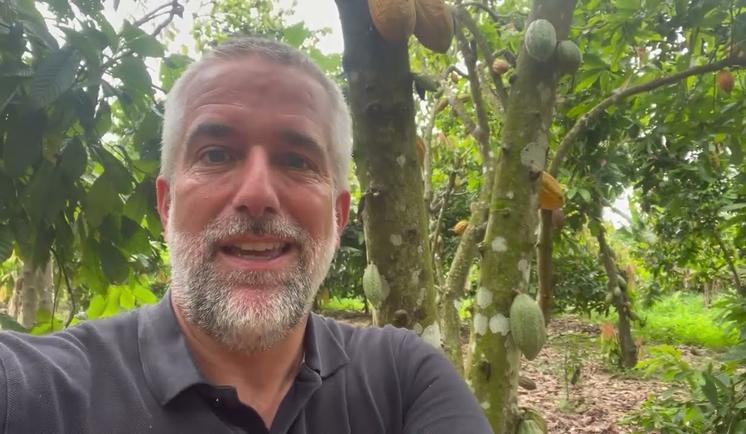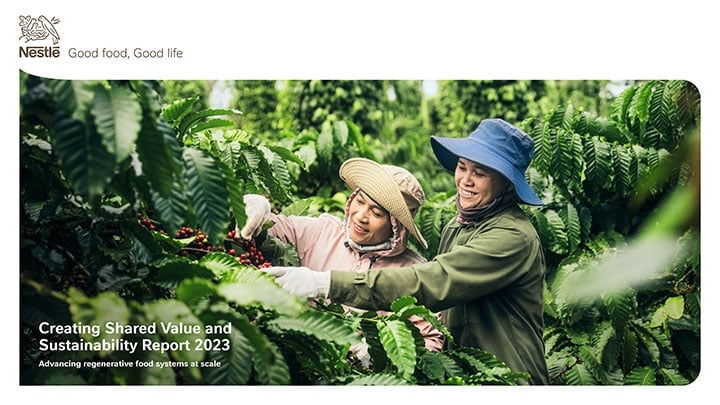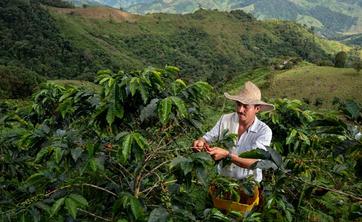Sustainable cocoa

Cocoa is a key ingredient in our confectionery products, especially chocolate. But cultivating cocoa involves numerous challenges, like deforestation, child labor risks and low incomes for cocoa-farming households.
The Nestlé Cocoa Plan, along with Rainforest Alliance certification, allows us to take steps aiming to tackle these social and environmental issues to create a sustainable cocoa supply chain. We are committed to sourcing 100% of our cocoa through the Nestlé Cocoa Plan by 2025.
Our progress toward sustainable cocoa
Our approach to sustainable cocoa
The Nestlé Cocoa Plan is our plan for building a more sustainable supply chain for cocoa. We are working with farmers, communities and local and international organizations to develop and implement solutions to the numerous challenges facing cocoa-farming communities.
As well as our work with farming communities, we aim to ensure that our cocoa suppliers comply with our Responsible Sourcing Standard.
The Nestlé Cocoa Plan is expanding its reach each year, aiming to cover 100% of our cocoa supply by the end of 2025.
Our Income Accelerator Program
The Income Accelerator Program aims to tackle child labor risks by incentivizing and supporting change in cocoa-farming households and to help them towards a living income. It does this through a cash incentive and support across four areas: cocoa farm productivity, child education, agroforestry and additional incomes. Empowering women and gender equality is a key focus.
The program will now be expanded from Côte d’Ivoire to Ghana, allowing us to help close the living income gap for a total of 30,000 cocoa-farming families. We aim to reach an estimated 160,000 cocoa-farming families in our global cocoa supply chain by 2030 to create impact at scale.
We support cocoa farm productivity through training, equipping and subsidizing pruning groups. We support agroforestry by distributing forest and fruit trees, and additional incomes for women by setting up village savings and loans associations combined with gender and entrepreneurship training.
Early results of the pilot, which involved 1,000 families of cocoa farmers, are promising. School enrollment rates have risen, pruning has increased the productivity of cocoa farms, and women have been empowered and more involved in decision-making, which has improved the allocation of family resources. The program has also had a substantial impact on income diversification.
More on this can be found in our progress report (pdf, 2Mb).
Our work on the Nestlé Cocoa Plan is in three pillars:
-
Better Farming: providing training and resources to help farmers improve their crops, increase their incomes and improve their livelihoods.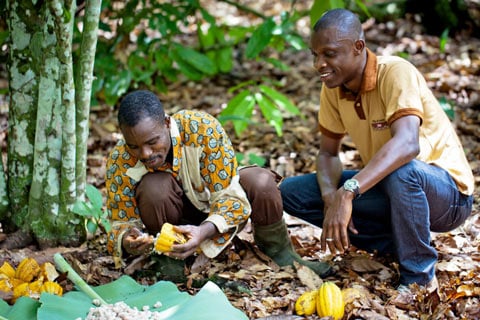
-
Better Lives: tackling child labor, empowering women and improving education to help communities thrive.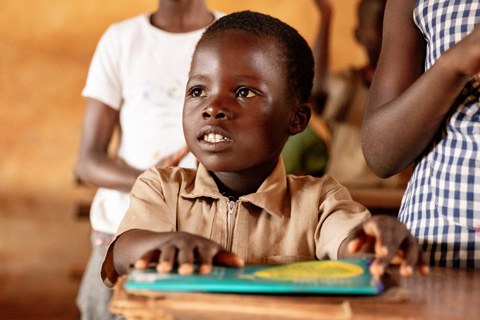
-
Better cocoa: enhancing supply chain traceability and tackling deforestation.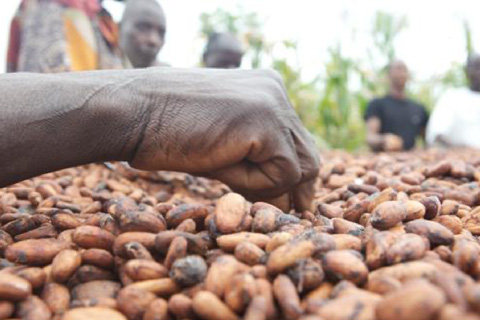
Better farming
We are helping farmers to improve their crops and livelihoods by supporting best practices, providing resources and incentivizing them to adopt regenerative agricultural methods. Farmers are trained in field schools and by individual coaching.
Through our training, farmers can reduce disease in crops, improve bean quality, rejuvenate plantations and manage land more sustainably. By teaching farmers how to build and use solar dryers, for example, they can dry cocoa even in the rainy season. This helps them maximize incomes all-year round, and improves the quality of their cocoa, giving them access to better prices and premiums.
To help diversify farmer incomes, we provide training and access to cassava and plantain growing, livestock rearing and beekeeping to create honey. We also teach innovative cultivation techniques, such as growing tomatoes without soil. This reduces water use and requires less space while reaching the harvesting stage faster.
This footage was filmed on a mobile phone, which may affect the audio-visual quality.
Better lives
Tackling child labor risks in our cocoa supply chain
Child labor risks are a complex and challenging issue in our cocoa supply chain, and are affected by many factors, including poverty, demographics, education, infrastructure and local culture. We work with the International Cocoa Initiative, supply chain partners and local communities in West Africa to address the risks of child labor.
Since 2012, a key element in our work has been our Child Labor Monitoring and Remediation System (CLMRS), which helps us to identify children at risk, raise awareness and provide remediation.
Our remediation work includes helping children get access to schooling by building and refurbishing schools, providing school kits and helping obtain birth certificates. Further insights into the successes and challenges of running CLMRS in Côte d'Ivoire can be found in our Tackling Child Labor report (pdf, 6Mb) and our Creating Shared Value and Sustainability report 2022 (pdf, 15Mb).
Read more about our approach to tackling child labor risks.
Helping cocoa communities grow by saving money
Many individuals, communities and villages in cocoa-growing areas find it difficult to save money. We are supporting efforts to help them through a community approach.
The Village Savings and Loans Association (VSLA) scheme openly ensures that everyone can see how much money is paid into a secure box and how much is going out if someone needs assistance. At the end of each annual cycle, accumulated savings are distributed back to members with interest.
This demonstrates that communities can save and provide support to individuals when needed, creating trust and bringing the community together. It also helps people to save for bigger purchases or to start their own businesses. Once trained, the communities can run the funds themselves, enabling the whole village to become more resilient.
Better cocoa
We work closely with direct suppliers and partners to trace the cocoa we source back to individual farmers and implement practices such as forest and fruit-tree planting to help tackle deforestation.
Increasing traceability in a complex cocoa supply chain
Our cocoa is largely grown by smallholders. Our approach is to work with farming cooperatives – these group the output of multiple farmers while providing traceability and records of purchases from individual farmers.
We aim to achieve full traceability and segregation of our cocoa products, from origin to factory.
This will drive greater supply chain transparency and accountability, both internally and on an industry-wide scale. This is critical to effectively addressing child labor and deforestation risks in cocoa production.
Our tier-1 suppliers (pdf, 300Kb) manage the commercial relationship with cooperatives and most of their sustainability activities, including Rainforest Alliance certification where relevant.
The Nestlé team manages some aspects directly, including the supervision of shade tree nurseries, gender training for cooperatives and the development of video training. We subsidize pruning groups to improve productivity, and trial new ideas that our suppliers can scale up. We aim to develop long-term relationships with cooperatives, and several have been working with us for over eight years.
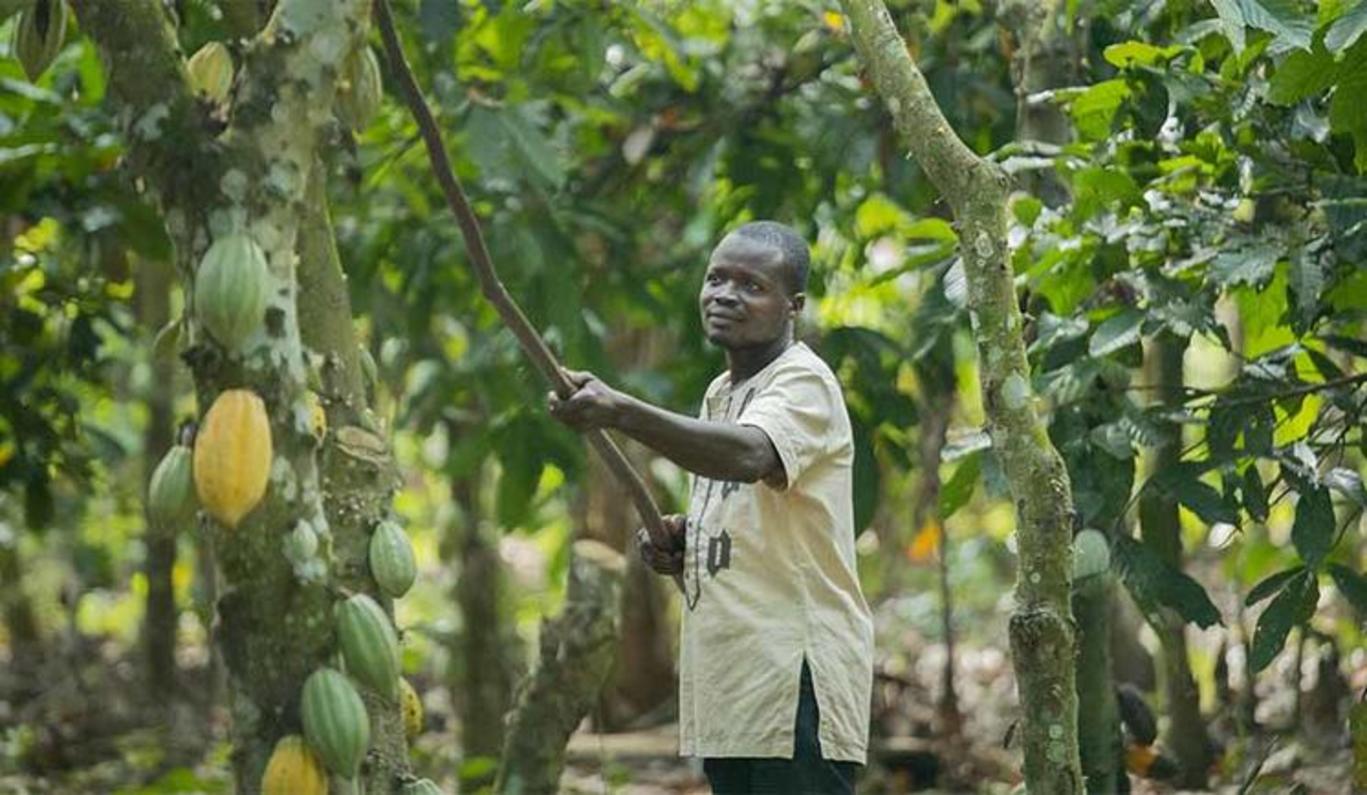
Growing cocoa in a forest environment
Cocoa plants grow better and produce better crops when grown beneath the canopy of larger trees, which cast shade on the cocoa.
As part of our Net Zero Roadmap and Income Accelerator Program, we are encouraging farmers to plant more forest and fruit trees to protect their crops from heat stress and excessive rainfall. These trees also help to improve water management, local biodiversity, soil organic matter and carbon sequestration, while potentially providing additional income sources for farmers.
Through the Nestlé Cocoa Plan, we distributed 1.38 million forest and fruit trees globally in 2023.
Reporting transparently on deforestation
Since 2020, we have reported annually on how we are tackling deforestation (pdf, 9Mb) and promoting regenerative practices among cocoa farmers in Côte d’Ivoire and Ghana.
Our Towards Forest Positive Cocoa report is part of our commitment to the Cocoa & Forests Initiative (CFI) and is how we report progress toward our CFI Action Plan (pdf, 900Kb).
This work is part of our Forest Positive strategy, launched in 2021 to build on our work to end deforestation in our supply chains. Forest Positive means moving beyond just managing deforestation risks in our supply chain to having a positive impact on our broader sourcing landscapes
Transforming cocoa production through collaboration
The Nestlé Cocoa Plan is helping transform cocoa supply chains beyond Nestlé. For example, we implemented a Child Labor Monitoring and Remediation System (CLMRS), which many companies have now adopted as a leading tool for tackling child labor risks. Addressing child labor risks and access to education is one of our 10 salient human rights issues – our action plan sets out our approach.
We have been a dedicated member of the Cocoa & Forests Initiative – an industry and intergovernmental group dedicated to ending deforestation and restoring forest areas – since it was established. We work with Rainforest Alliance to certify our efforts in conservation, protecting the human rights of farming communities and improving farmer livelihoods.
In April 2020, we joined the Child Learning and Education Facility coalition. Through this organization, we are supporting the development of quality education in rural communities in Côte d'Ivoire. The coalition has been promoted by the Jacobs Foundation, with whom Nestlé already partners to develop training for young people as part of the Transforming Education in Cocoa Communities program.
In addition, we work with industry partners to call for stronger policies. Alongside various cocoa and chocolate manufacturers and civil society organizations, we have published a joint position paper on the European Union’s policy and regulatory approach to cocoa (pdf, 300Kb). In it, we call for mandatory human rights and environmental due diligence to be established, alongside stronger partnerships with producer governments to ensure sustainable cocoa.
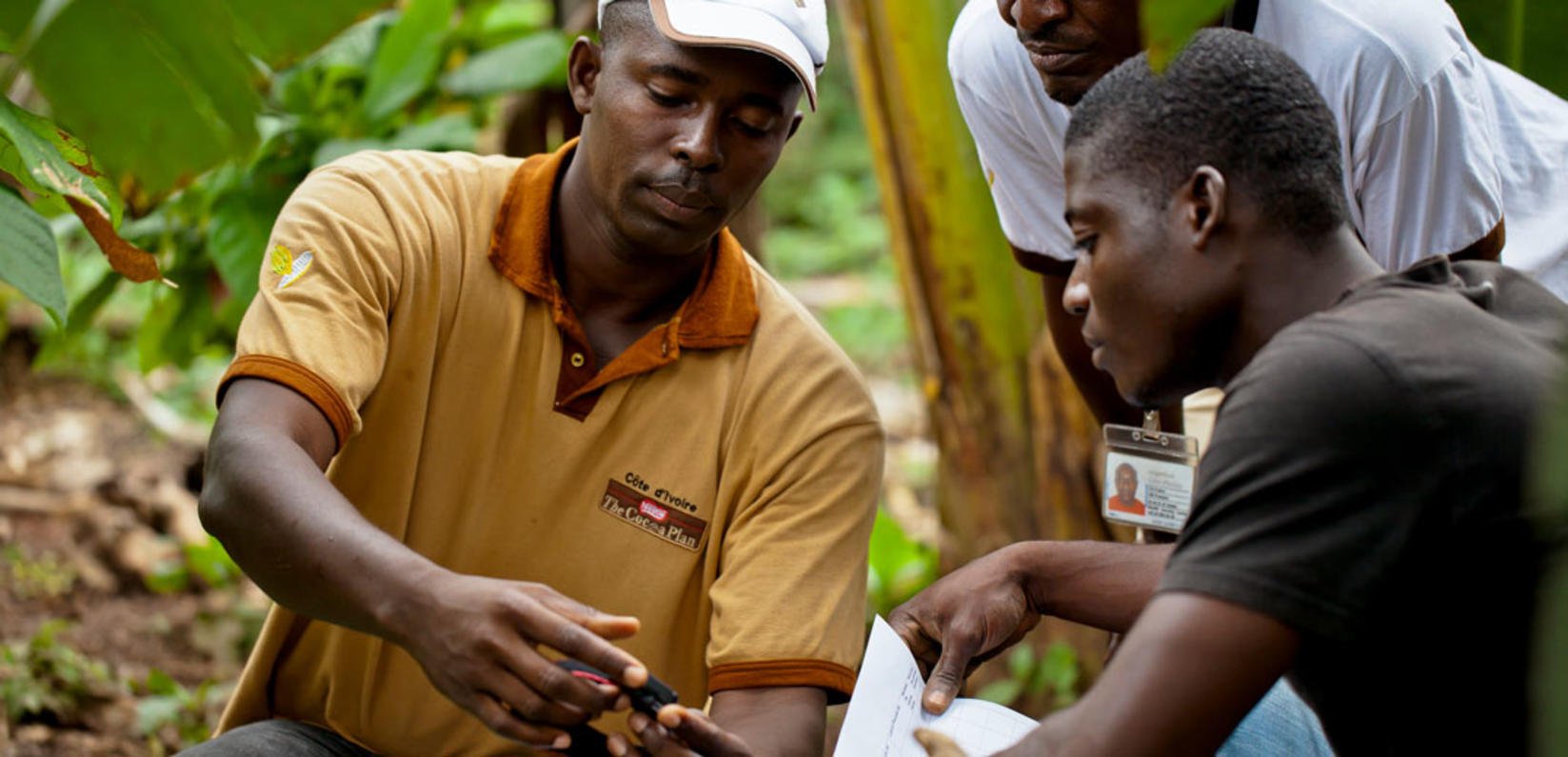
It motivates me to see farmers convinced of the benefits: over 90% want to continue pruning and some already pruned the remainder of their plot.

